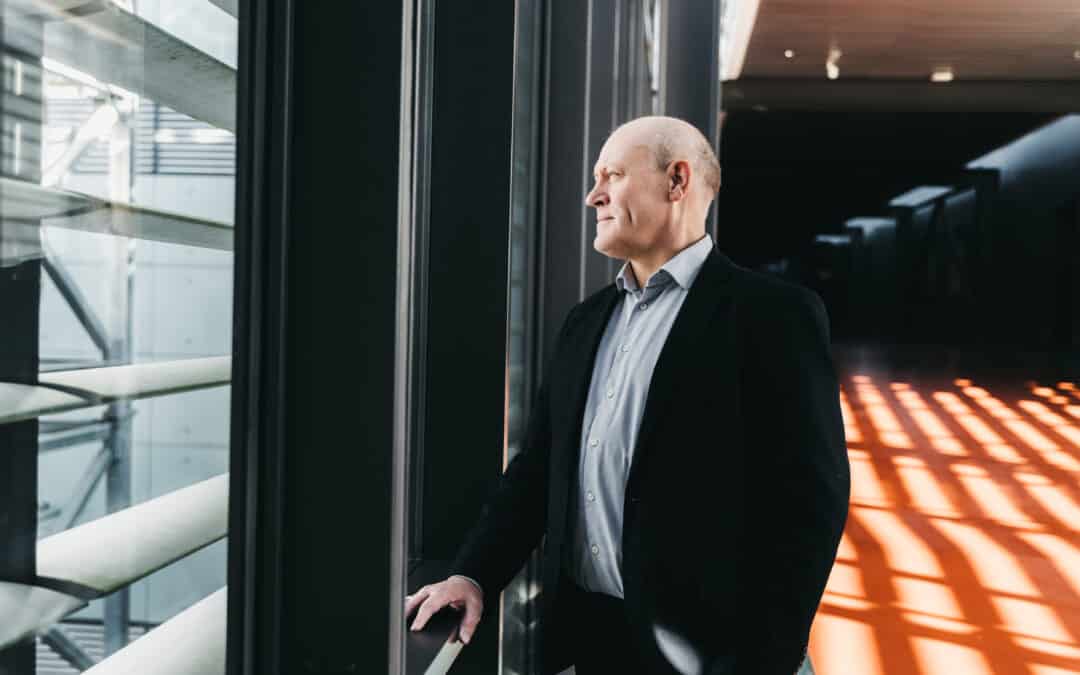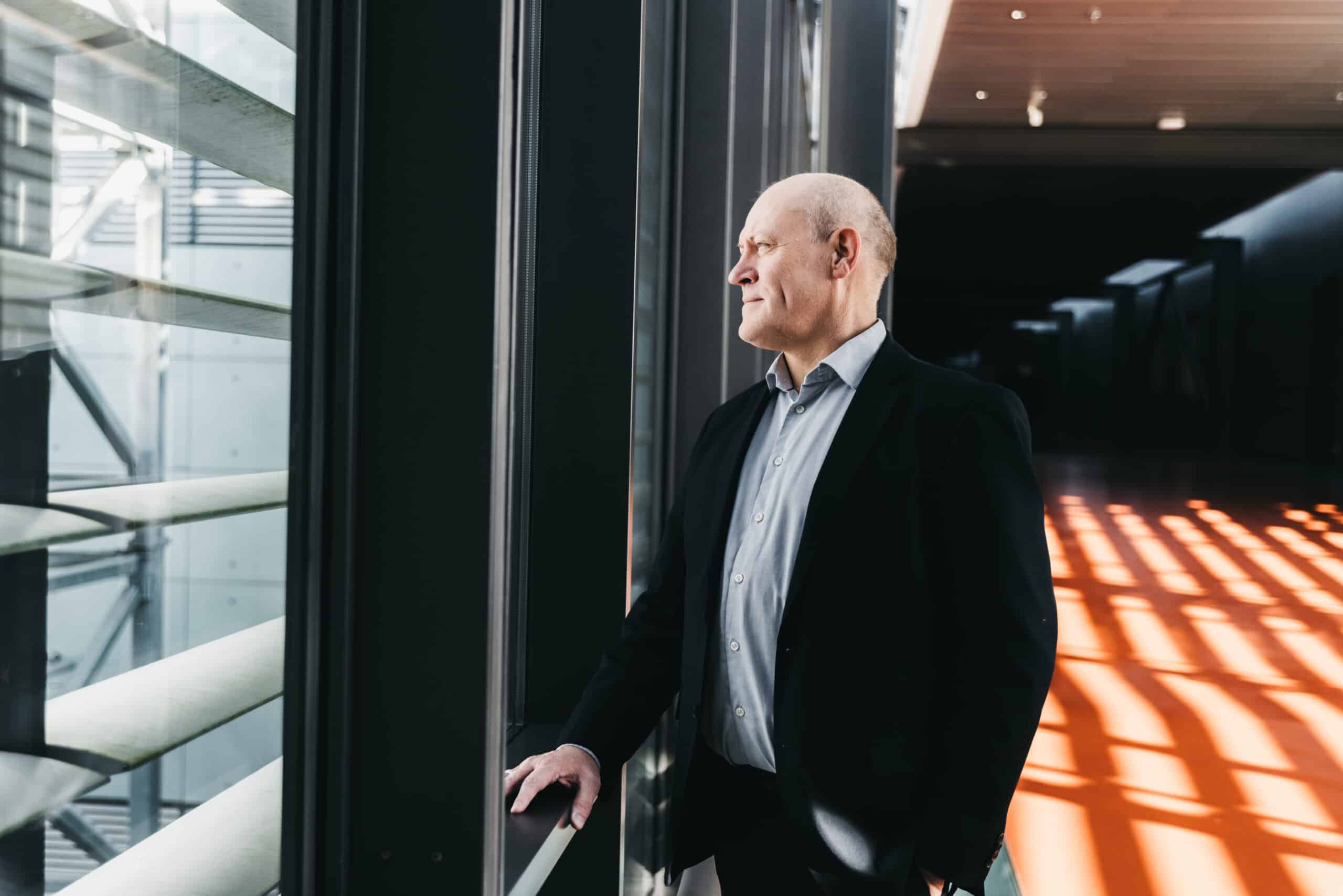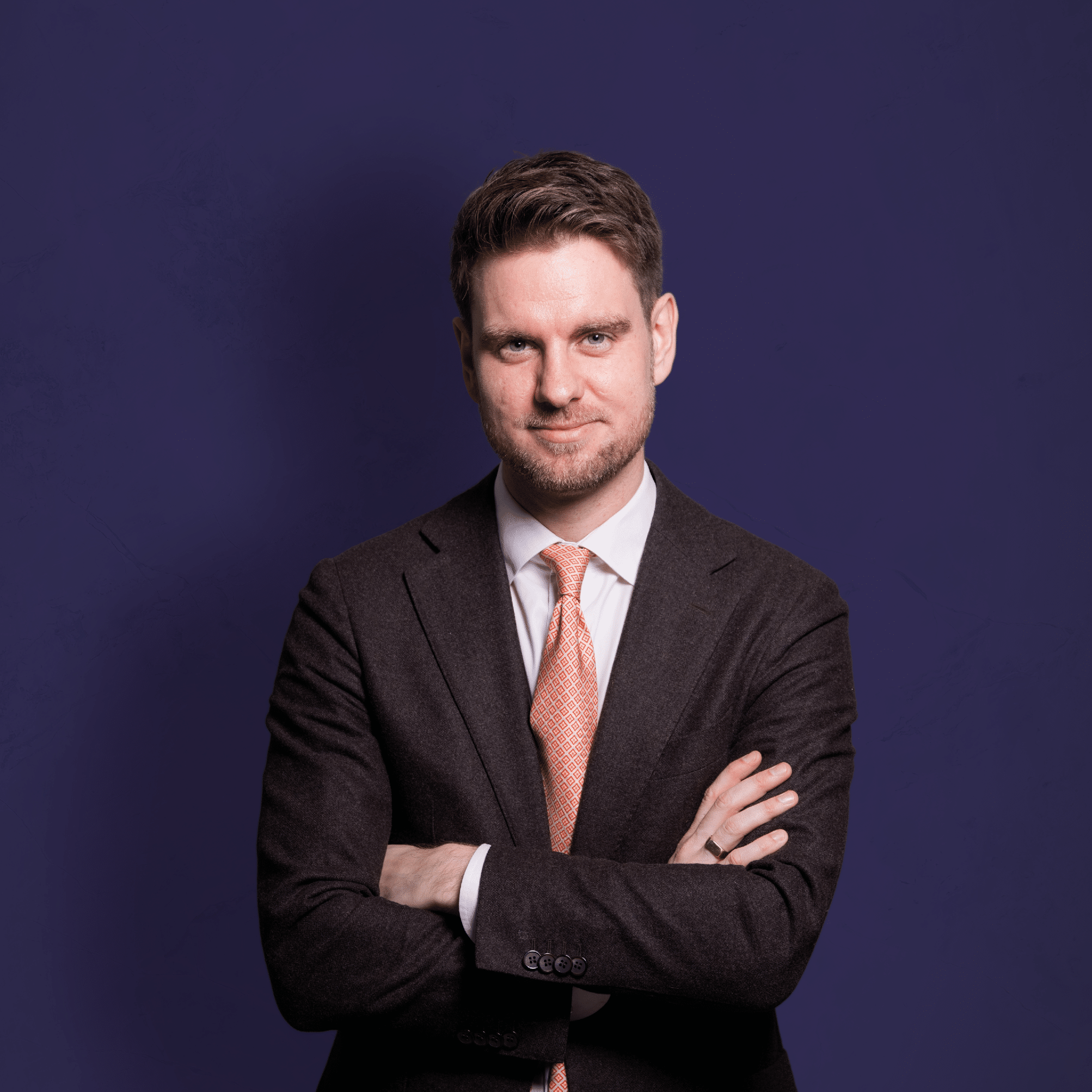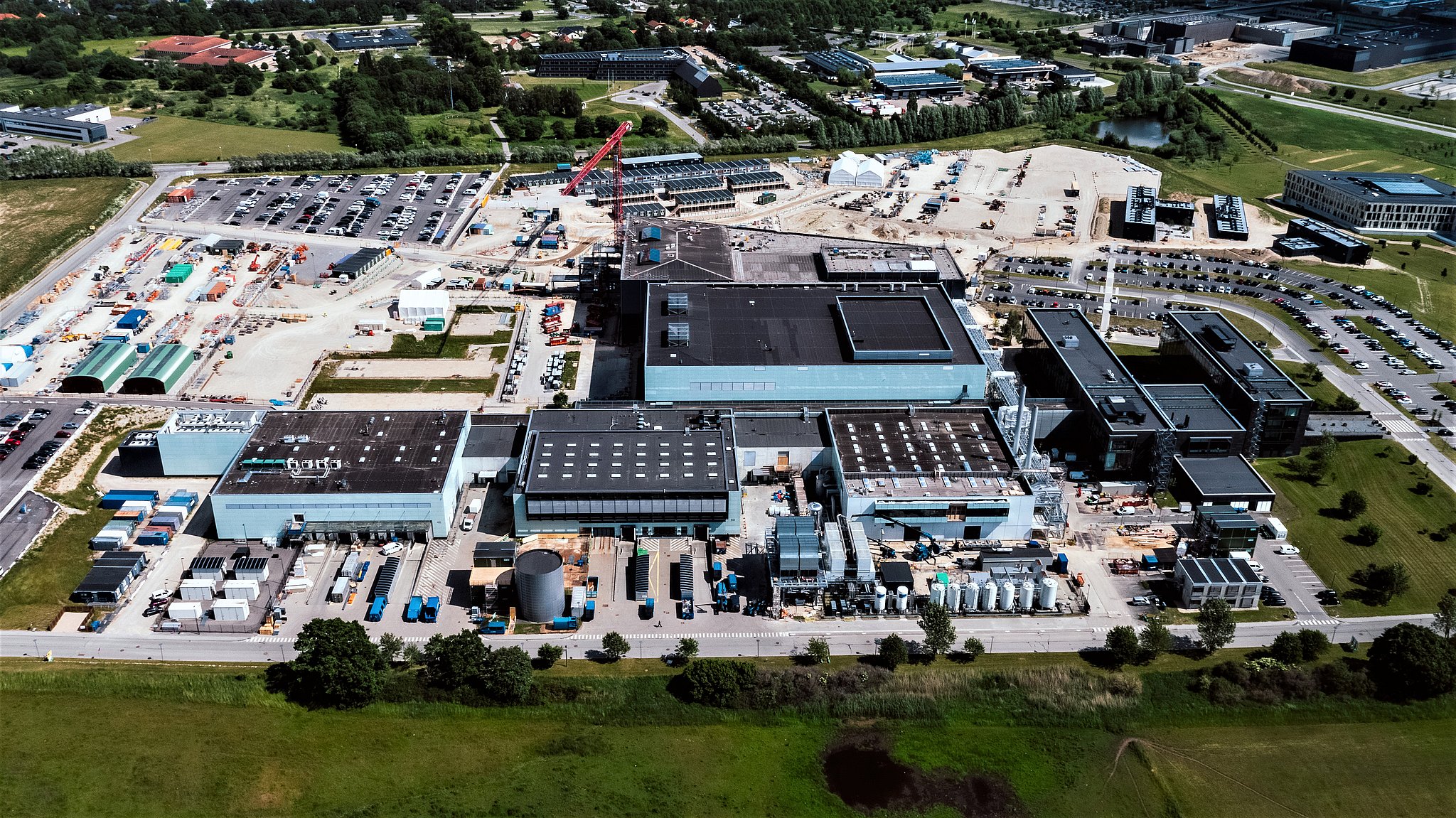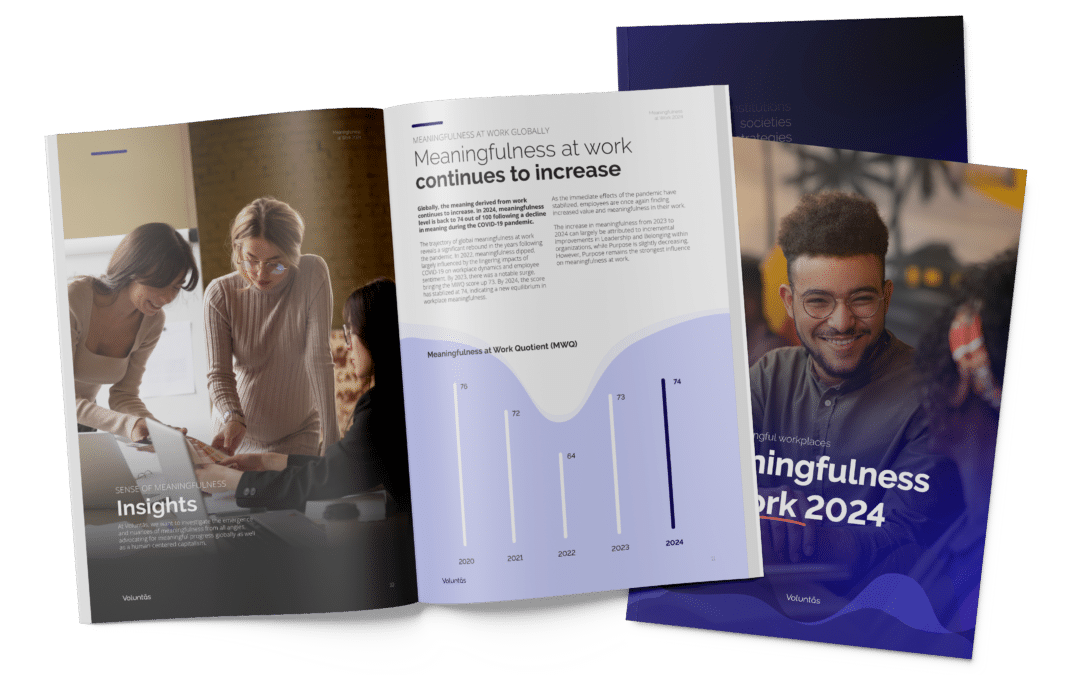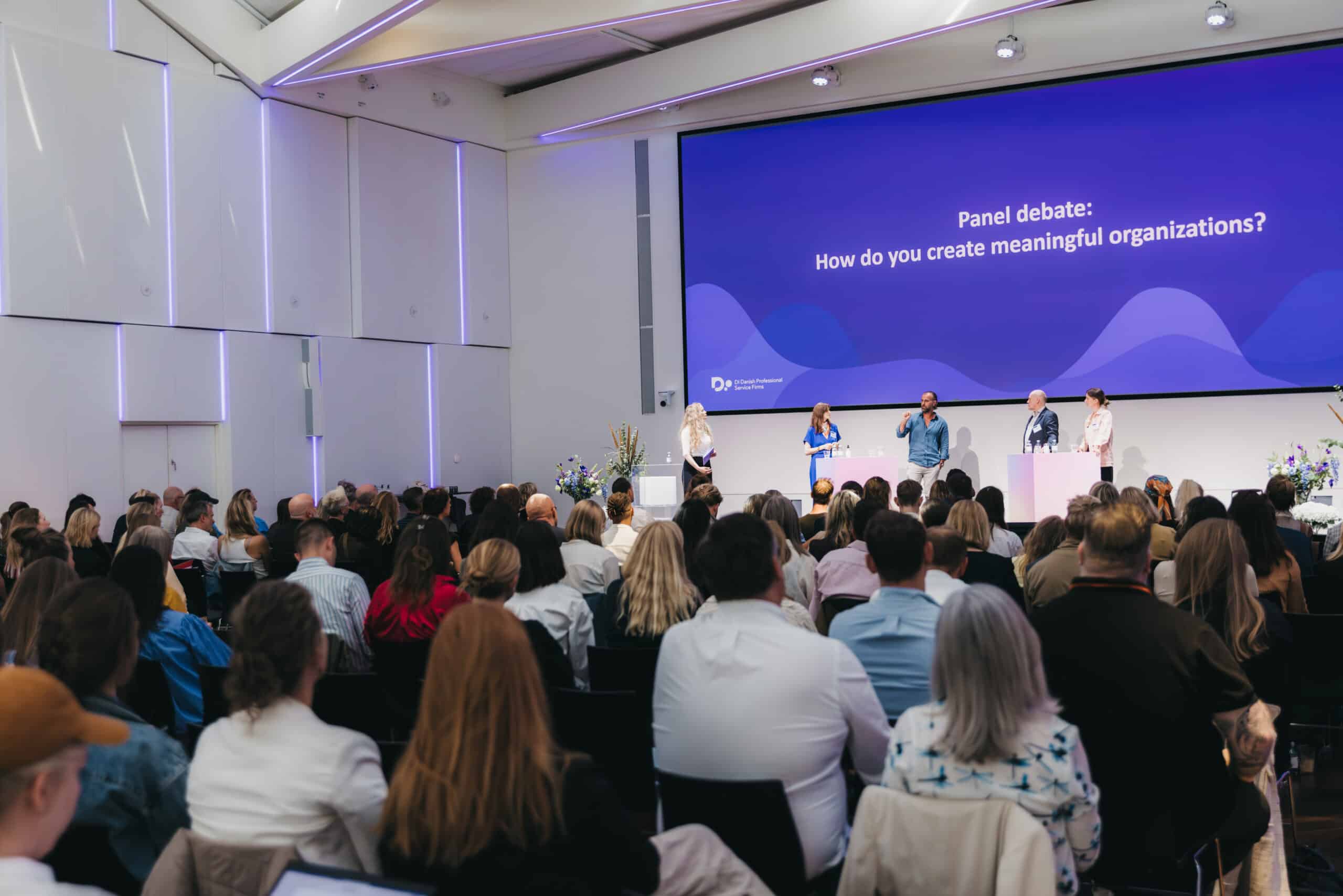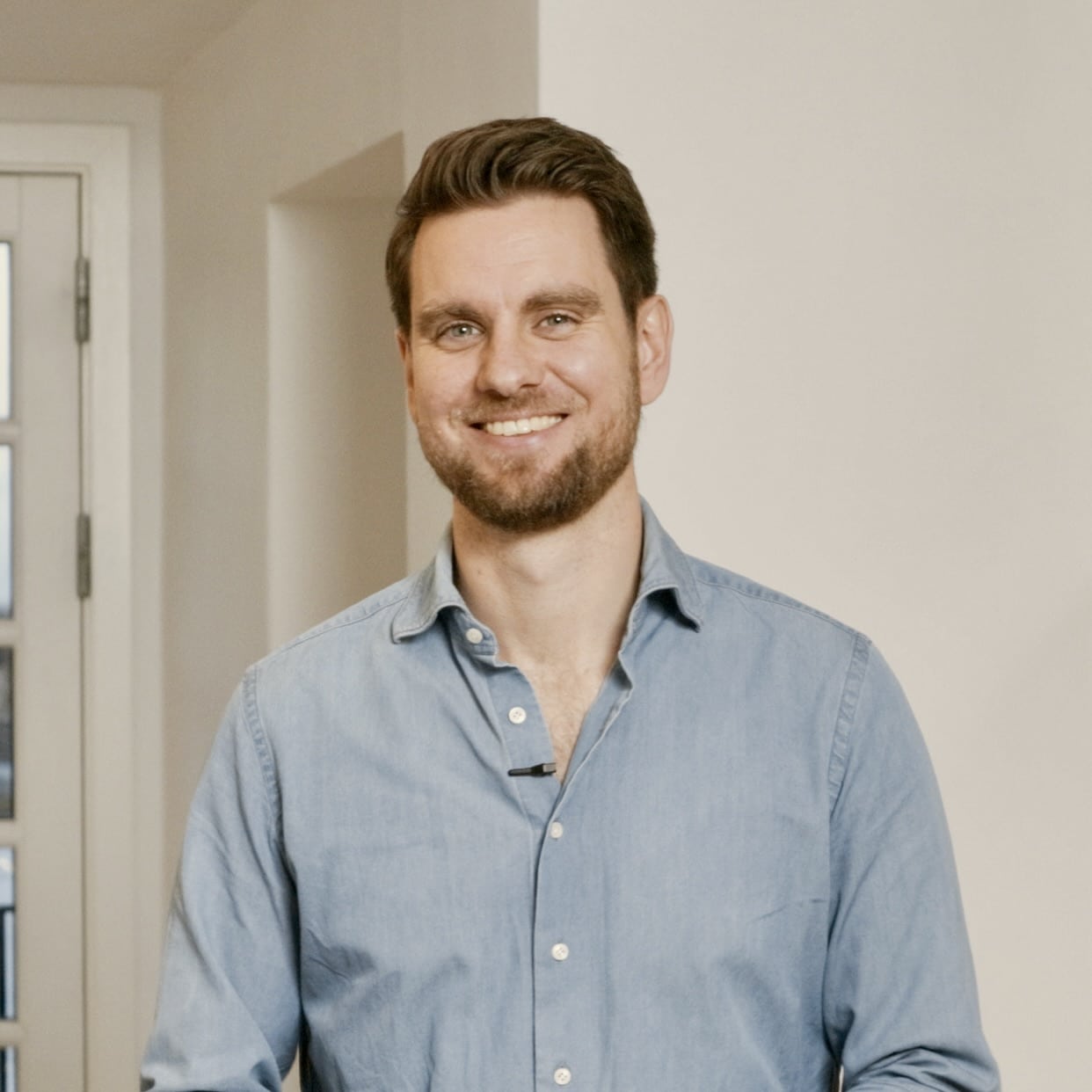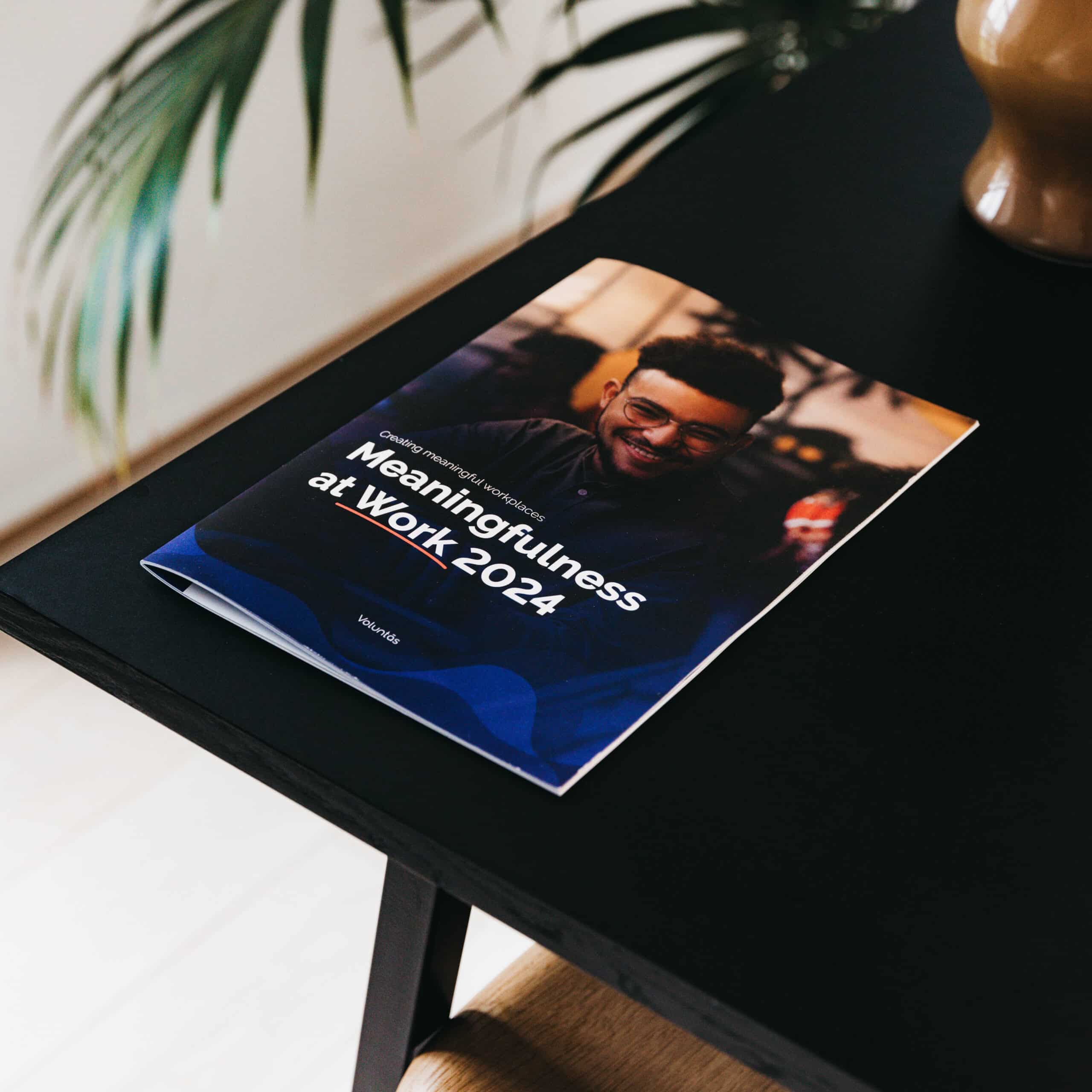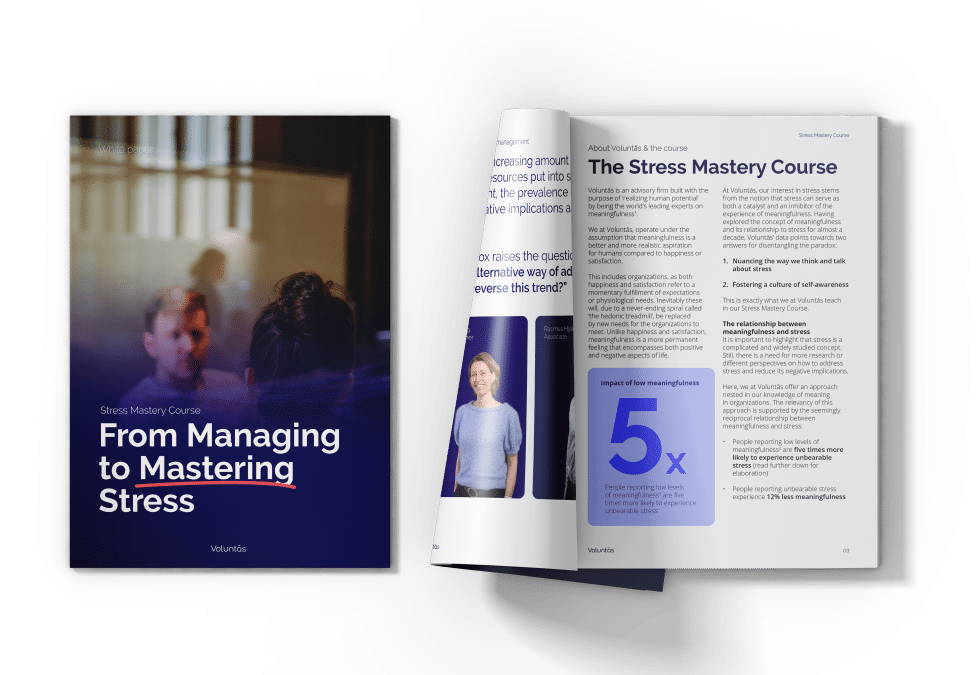
From Managing to Mastering Stress

Product offering
From Managing to Mastering Stress
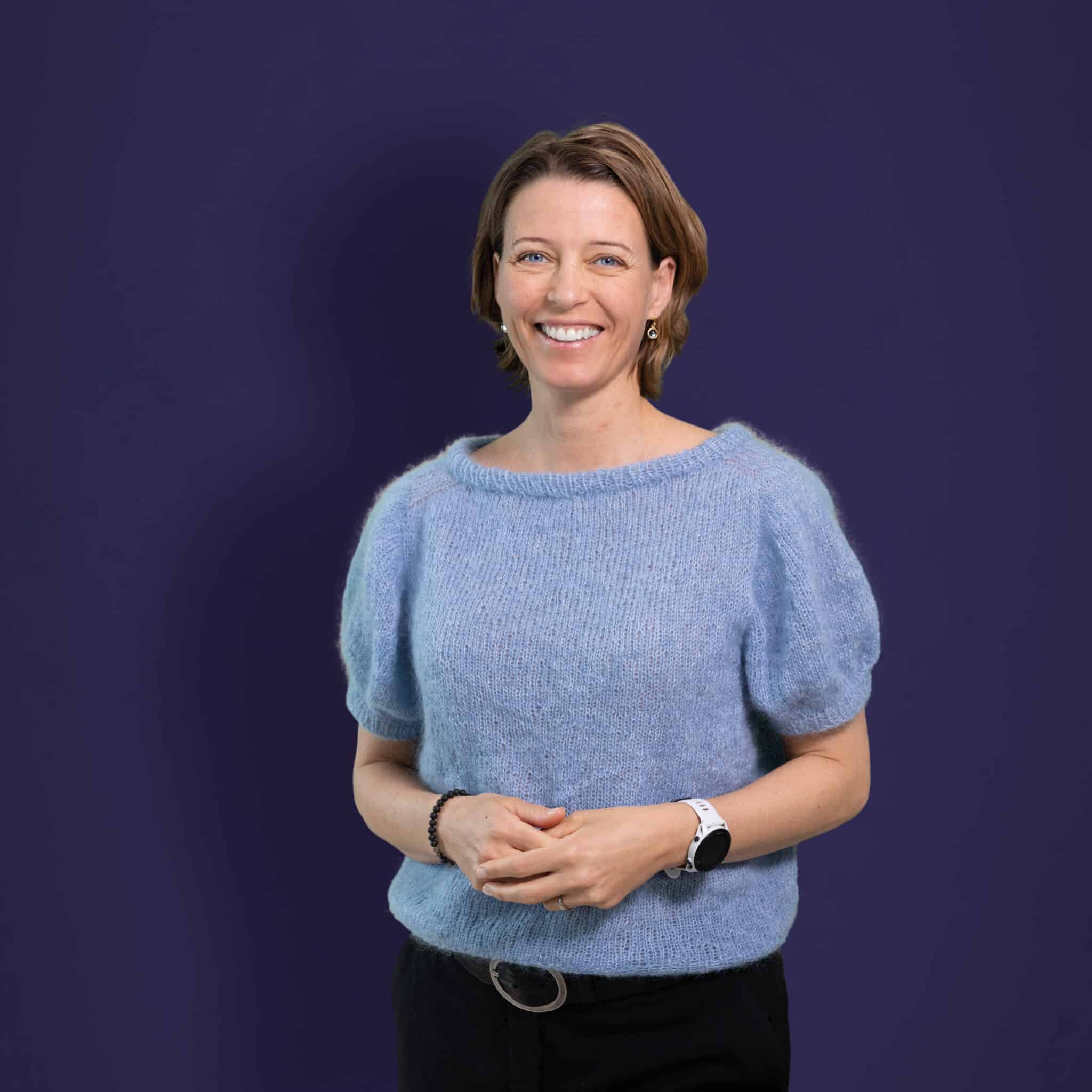
Netti Fuglesang
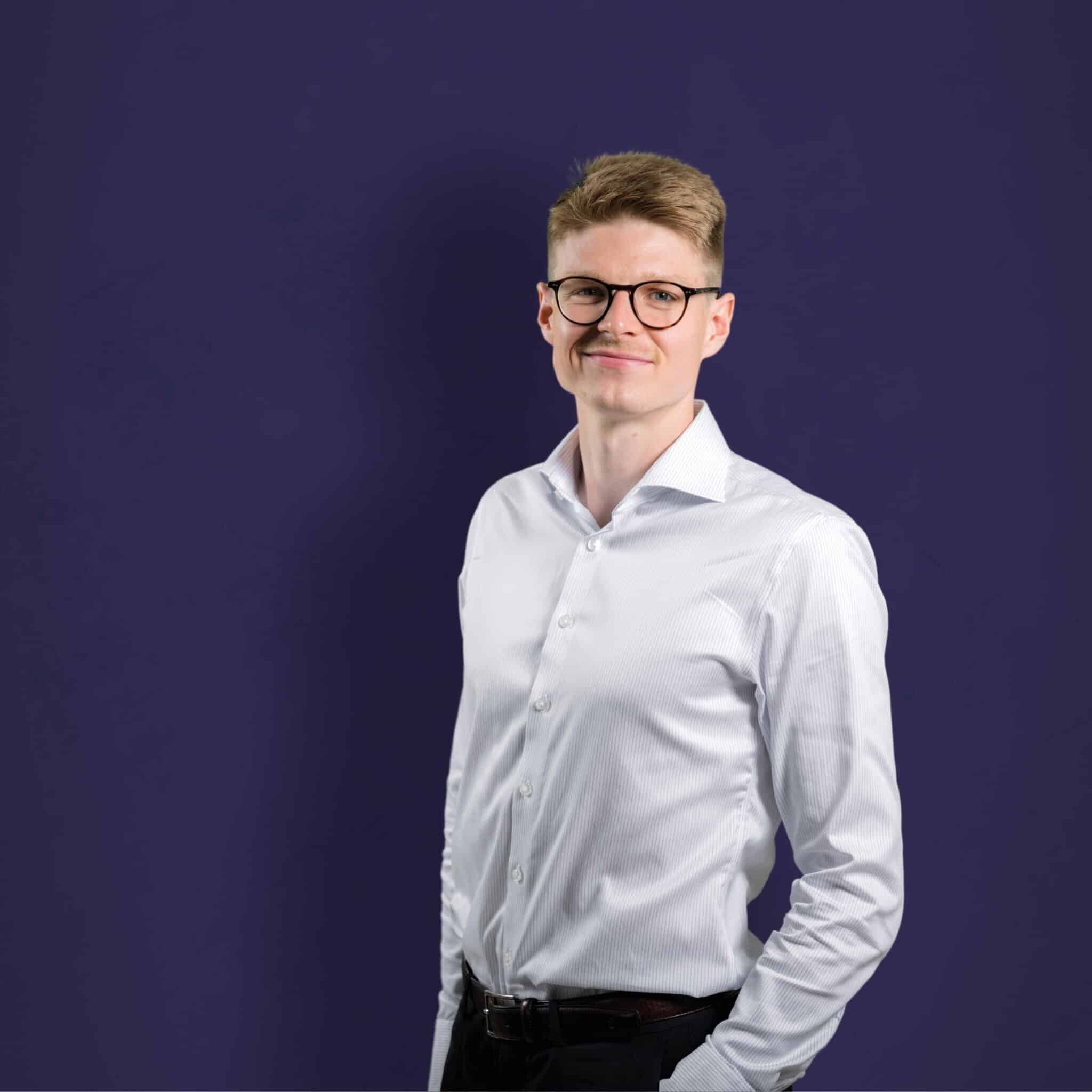
Rasmus Hjalgrim
The paradox of stress management
Maybe you as an individual or organization find tackling stress akin to the Sisyphean myth, where putting a lot of effort and time merely leads you back to the beginning or even to a worse state. Then (unfortunately) you are not alone.
Despite an increasing amount of focus and resources put into stress management, the prevalence of stress and its negative implications appear to keep rising. This paradox raises the question: “Is there an alternative way of addressing stress to reverse this trend?”
Having now surveyed more than 50,000 employees and leaders across several industries and countries on how they experience meaning at work and explored the concept of meaningfulness and its relationship to stress for almost a decade, Voluntās’ data points towards two answers:
- We need to nuance the way we think and talk about stress
- We need to foster a culture of self-awareness
This is exactly what we at Voluntās teach in our Stress Mastery Course and what we will dwell upon in our upcoming webinar.
Equipping employees, leaders, and organizations with a nuanced understanding of what stress is to them and how to master it through self-awareness.
Webinar
Unlock the first step towards stress mastery by watching our introductory webinar.
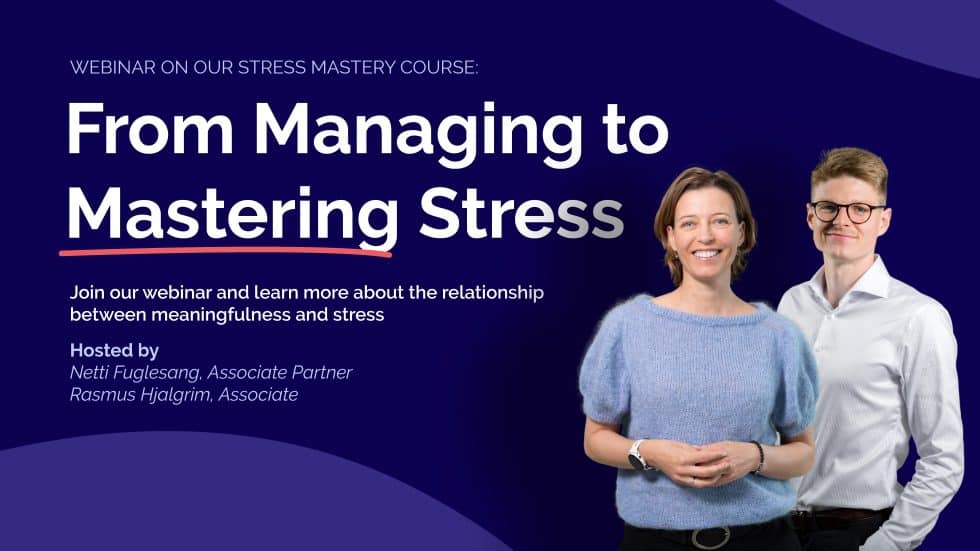
This engaging session offers a glimpse into the essence of the Stress Mastery Course, highlighting the pivotal role of meaningfulness and self-awareness in becoming better at tackling stress.
THE PARADOX
The complexity of tackling stress
When organizations today are called upon to tackle stress, they face an overwhelming challenge as it is, firstly, difficult knowing where even to begin, and, secondly, stress has become a victim of mainstream and uninformed notions about the concept. This situation leaves organizations vulnerable, and they end up going for a stress management strategy that is either too broad or too narrow, too collectively or individually oriented, and, more importantly, not tailored to their specific culture.
To back this up, although people are inclined to regard stress as something bad that should be avoided, stress is an inevitable part of the culture in some of the most meaningful organizations we at Voluntās have worked with. Yet, the reverse also holds true in that:
- People reporting low levels of meaningfulness are five times more likely to experience unbearable stress
- People reporting unbearable stress experience 12% less meaningfulness
MEANINGFUL LEARNINGS FROM THE WEBINAR
(Self)-Assess what is needed
Understanding what role stress plays in your organizational culture, your everyday life and how you should approach it requires the ability to look inward and self-assess your needs, capabilities, and limitations. Yet, this is easier said than done as we are constantly impacted by activities and psychological mechanisms that lead us away from the path towards self-awareness and instead compromise our health and social needs, worrying unnecessarily and, ultimately, becoming unbearably stressed.
Many of these mechanisms and instances of unbearable stress are preventable, especially with help from other people, but organizations often lack the knowledge and skills to nurture an environment where this is possible.
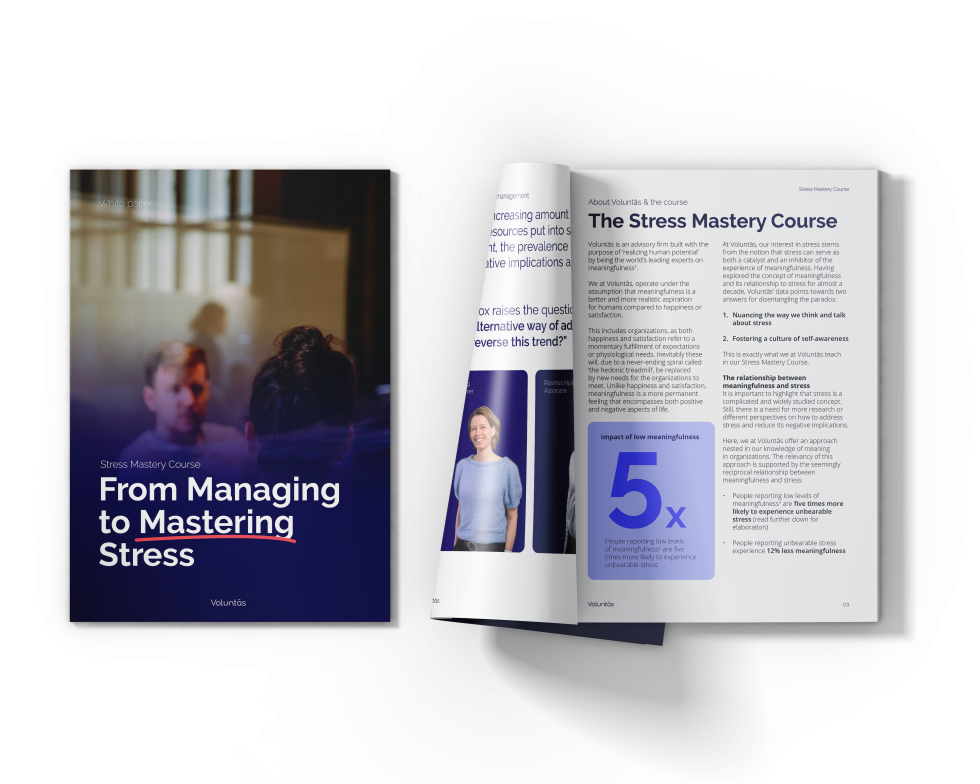
Download white paper
Learn why we at Voluntās find it essential for individuals and organizations alike to change the way they think and talk about stress and to foster self-awareness if they want to tackle the paradox of stress management: The prevalence and negative implications of stress appear to rise despite increasing efforts to manage it.
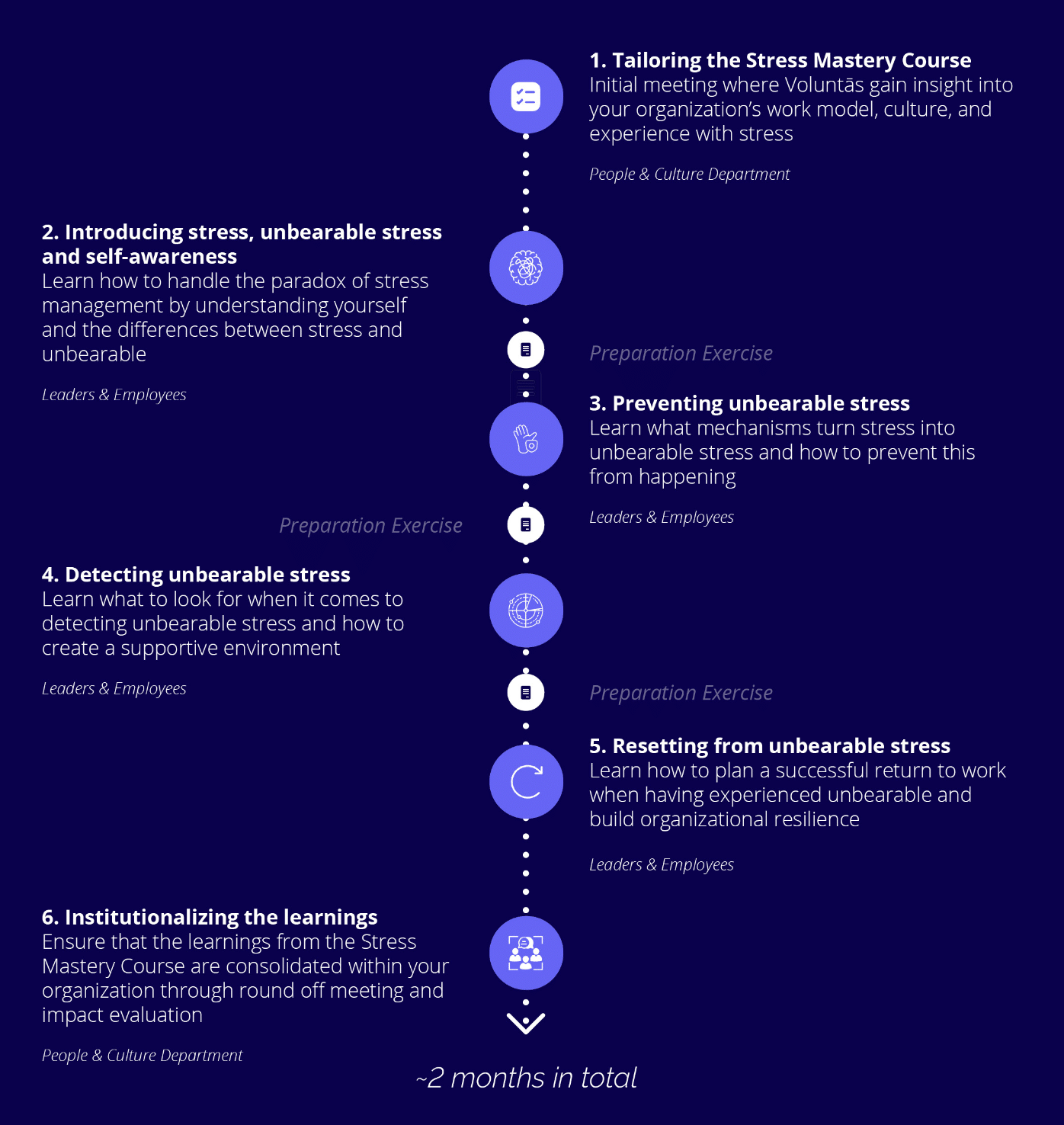
Having participated in the webinar, you will have insight into:
- What stress is and what it is not and its relationship to the experience of meaningfulness
- The damaging effects of too much and too little stress
- The importance of striving for the perfect (im)balance between stress and recovery
- Psychological mechanisms that cause unbearable stress and how to combat these
- Practical tools for mastering stress at an individual, team, and organizational level
If you find any of the above interesting and relevant, we strongly encourage you to sign up for the webinar and download our white paper. The white paper elaborates on the paradox of stress management and the concepts of stress, unbearable stress, and self-awareness from a philosophical and scientific standpoint.
We look forward to seeing you.
TAILOR-MADE TO YOUR ORGANIZATION
About the course
The Stress Mastery Course teaches employees, leaders, and organizations how to nuance and optimize the discourse around stress and foster a self-aware culture.
The Stress Mastery Course consists of six parts, and the content is tailor-made to your organization’s specific context.
The participants receive exercises between and after the workshops to ensure the implementation of the learnings.

Netti Fuglesang

Rasmis Hjalgrim
Follow us on social media

